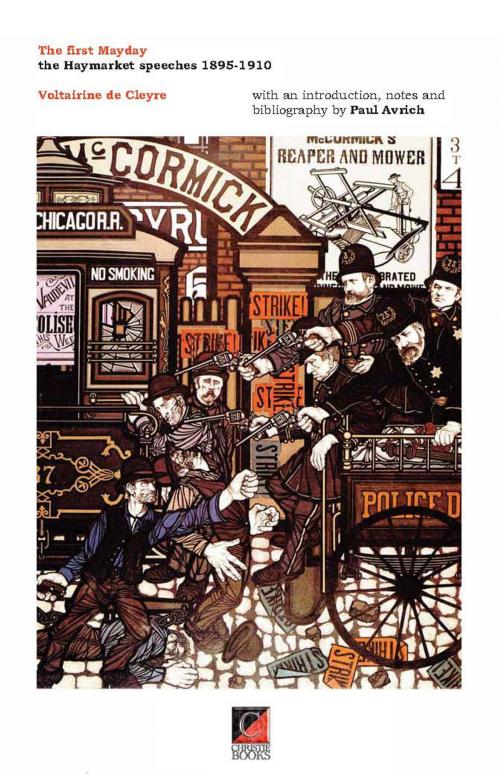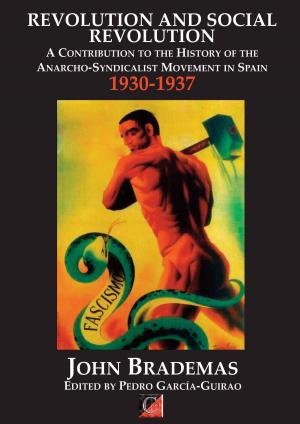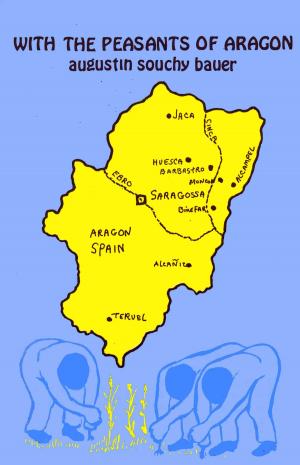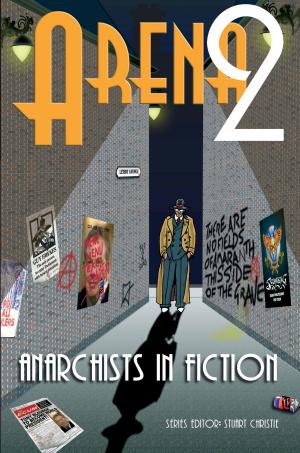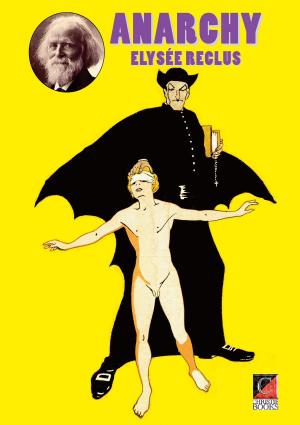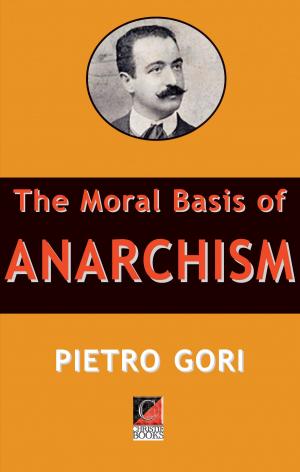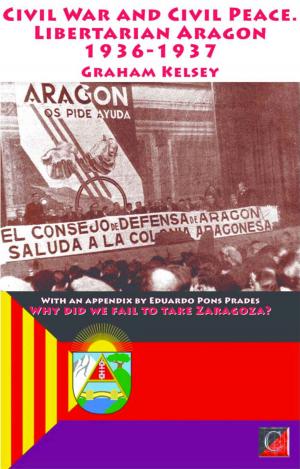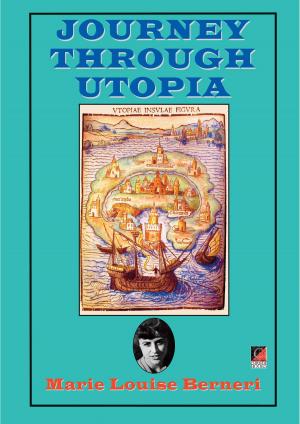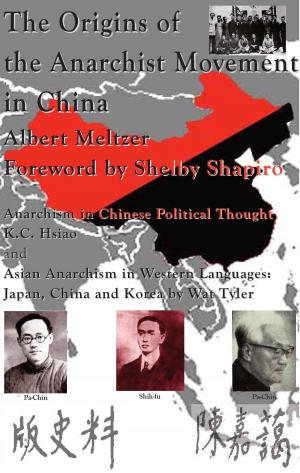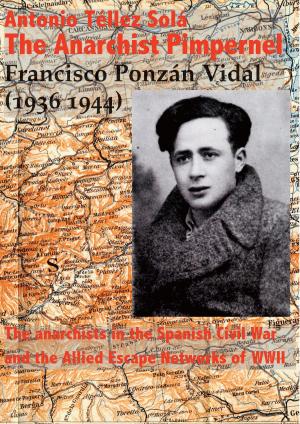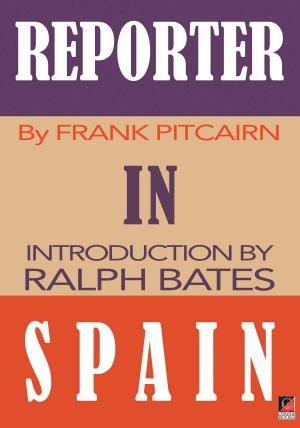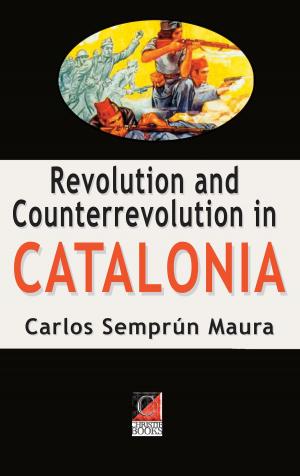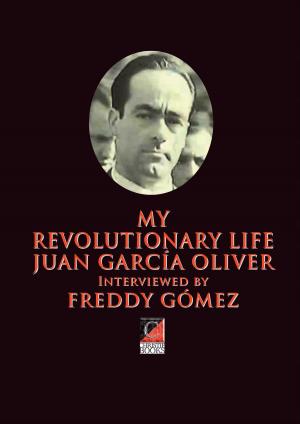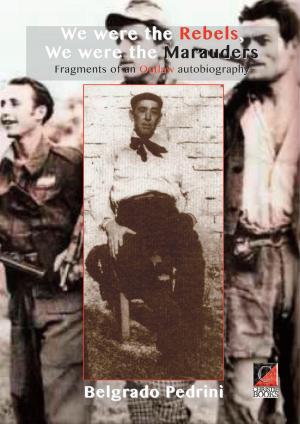The first Mayday
The Haymarket Speeches 1895-1910
Nonfiction, History, Revolutionary, Americas, United States, 20th Century, Biography & Memoir, Political| Author: | Voltairine de Cleyre, Paul Avrich | ISBN: | 1230000274541 |
| Publisher: | ChristieBooks | Publication: | October 16, 2014 |
| Imprint: | ChristieBooks | Language: | English |
| Author: | Voltairine de Cleyre, Paul Avrich |
| ISBN: | 1230000274541 |
| Publisher: | ChristieBooks |
| Publication: | October 16, 2014 |
| Imprint: | ChristieBooks |
| Language: | English |
On 1 May 1886, 800,000 workers from all trades and factories throughout the US went on strike in support of the eight-hour working day. In Chicago, a stronghold of immigrant labour and anarchists, 300,000 workers struck and marched through the city streets in a huge display of proletarian power. Before the Chicago May Day strike action began, the management at McCormick Machine Co. (now International Harvester) had locked out 1500 workers over a wage dispute. On 3 May, when pickets attempted to prevent blackleg labour entering the plant, the Chicago police opened fire on the workers, killing, four and wounding many more. Outraged at this act of naked aggression, radical newspapers called for armed resistance against the bloodthirsty Chicago police, and a protest rally was called for the following day (4 May) at Haymarket Square. Three leading anarchists gave speeches condemning police violence and capitalist oppression: Parsons, Spies and Fielden. As the meeting came to an end, 200 police moved in on the crowd. Suddenly, a bomb was thrown and exploded in the midst of the police, who immediately opened fire on the assembled workers. Several police and many workers were killed.
In the hysterical aftermath of the Haymarket tragedy five anarchists were convicted and sentenced to hang by a specially constituted tribunal. On 11 November, Black Friday, it murdered Parsons, Spies, Fischer and Engel. Lingg had committed suicide the previous day. They were later shown to have had nothing to do with the bombings.
On 14 July 1889, on the hundredth anniversary of Bastille Day, an American AFL delegate attending the International Labour Congress in Paris proposed that 1 May be officially adopted as a workers’ holiday. This motion was unanimously approved and since then May Day has served as a date for international working class solidarity.
These speeches, delivered between 1985 and 1910 by anarchist agitator Voltairine de Cleyre, eloquently express the mood of US labour militants and confirm the last words of Spies: ‘There will come a time when our silence from the grave ‘ will be more powerful than the voices you strangle today!’
On 1 May 1886, 800,000 workers from all trades and factories throughout the US went on strike in support of the eight-hour working day. In Chicago, a stronghold of immigrant labour and anarchists, 300,000 workers struck and marched through the city streets in a huge display of proletarian power. Before the Chicago May Day strike action began, the management at McCormick Machine Co. (now International Harvester) had locked out 1500 workers over a wage dispute. On 3 May, when pickets attempted to prevent blackleg labour entering the plant, the Chicago police opened fire on the workers, killing, four and wounding many more. Outraged at this act of naked aggression, radical newspapers called for armed resistance against the bloodthirsty Chicago police, and a protest rally was called for the following day (4 May) at Haymarket Square. Three leading anarchists gave speeches condemning police violence and capitalist oppression: Parsons, Spies and Fielden. As the meeting came to an end, 200 police moved in on the crowd. Suddenly, a bomb was thrown and exploded in the midst of the police, who immediately opened fire on the assembled workers. Several police and many workers were killed.
In the hysterical aftermath of the Haymarket tragedy five anarchists were convicted and sentenced to hang by a specially constituted tribunal. On 11 November, Black Friday, it murdered Parsons, Spies, Fischer and Engel. Lingg had committed suicide the previous day. They were later shown to have had nothing to do with the bombings.
On 14 July 1889, on the hundredth anniversary of Bastille Day, an American AFL delegate attending the International Labour Congress in Paris proposed that 1 May be officially adopted as a workers’ holiday. This motion was unanimously approved and since then May Day has served as a date for international working class solidarity.
These speeches, delivered between 1985 and 1910 by anarchist agitator Voltairine de Cleyre, eloquently express the mood of US labour militants and confirm the last words of Spies: ‘There will come a time when our silence from the grave ‘ will be more powerful than the voices you strangle today!’
